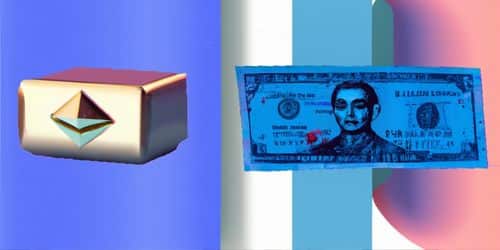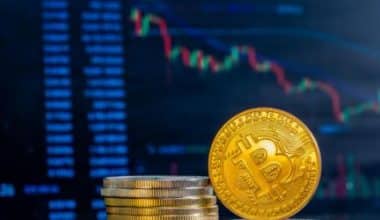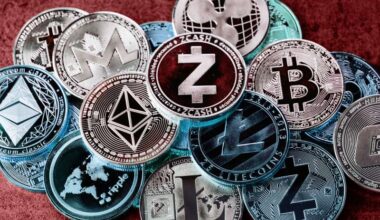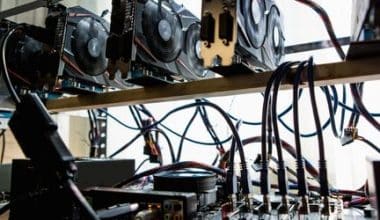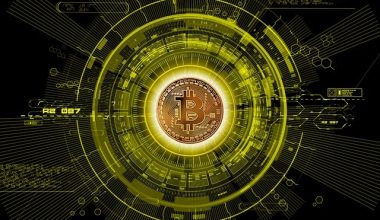The ability of an asset or good to be interchanged with other goods or assets of the same type helps modify the process of exchange and trade. Hence, it is referred to as “trade by barter” in a layman’s understanding. For instance, money can be interchanged with goods or services, which is to say that money is fungible with goods. So in this article, we will discuss the word fungibility, its examples, and its assets.
What is Fungibility?
Fungibility is best defined as the process of goods being interchanged with others of their kind. It can also be said to be securities or assets that are equivalent. The word “fungibility” is associated mostly with finance. To summarize, fungibility is the criterion for exchanging goods and services for useful purposes. Aside from money, which is good, some goods or assets are not fungible.
Examples of Fungibility Asset
Fungibility is divided into two different categories: fungible assets and non-fungible assets. Most of the time, companies that make fungible assets can’t compete on quality because all of their products are the same. However, the best examples of fungibility are money and gold, because they can never be rejected in terms of exchange and trading. Fungible assets are interchanged daily with or without our knowledge. Below are the basic examples of fungible assets,
Fungible Asset
#1. Currency
This refers to all forms of money used around the globe for trading goods and services. Currency can be interchanged for an agreement on the market price because it is a fungible asset that can be interchanged with other currencies, goods or to pay for services.
#2. Gold
This is an officially identified piece with some exceptions. This is because there is a thin line between it being fungible and non-fungible. However, as they vary in value, two or more coins that contain the same amount of gold will have different values. They can be exchanged or traded for one another. Gold is weighed and carefully examined to meet certain specifications, with the expectation that the exact gold can be withdrawn.
#3. Cryptocurrencies
(Bitcoins) are fungible because their values are consistent around the world. However, things like mismanagement and system hacking can affect the values, making them fungible. Cryptocurrencies are also referred to as “fiat currency.” For instance, Bitcoin, Ethereum, Tether, and U S dollar can be traded with one another.
Cryptocurrency is a digital currency that is another means of payment using encryption algorithms. Crypto functions as a currency and a virtual accounting system. Therefore, to use cryptocurrency, you will need a cryptocurrency wallet. These are cryptocurrencies that have all the standard attributes of a fungible asset. They portray a very clear value in the market, which makes it easier for traders to know their value.
Fungibility Crypto
Cryptocurrencies are fungible because they can be traded or exchanged for one another. That is to say that each unit of BTC is equal to any other unit, and that is because they all have the same quality and functions.
NOTE: Some crypto is likely to be less desirable than others, especially if it was used to carry out fraudulent or illegal activities in the past. This implies that some traders are willing to deny receiving Bitcoins as payment if they suspect the coins have been used for dubious activities.
Why is Cryptocurrency Fungible?
It is fungible because each unit of BTC is equal to any other unit; that is to say, they are of the same quality and function. Also, cryptocurrencies are fungible because they can be traded and interchangeable with one another, hence they are identical and have the same market value.
Resource Fungibility
When one part or quantity of something (money or a commodity) is replaced or exchanged for another part or quantity of equal value in paying debt or settling an account, for example, oil, lumber, gold, land, or cash can be exchanged for another. As a result, they are items that add value to business and human life on a daily basis. Furthermore, resources are divided into two categories: renewable and non-renewable resources.
Renewable resources: These are resources that can be replenished or reused over time, naturally. As the human population increases, so does the demand for renewable resources because of their ability to regenerate naturally. Examples include the sun, wind, water, biomass, wood, agricultural produce, food waste, etc.
Non-renewable resources: These are those that are considered limited due to the extremely long time it takes for nature to produce them. They are the resources that cannot be replenished after they are used up and are also limited in supply. Likewise, it can also be referred to as a thing’s “lifespan” to be replaced. for instance coal, natural gas, crude oil, etc.
Non-Fungibility
The inability of an asset or good to be capable of being traded or exchanged for another of the same value is called non-fungibility. One thing about things that can’t be changed is that they take longer to value, inspect, and take care of before they can be sold. Below are listed and explained examples of nonfungibility.
Non-Fungible Assets.
These are assets that are not easily replaced, exchanged, or traded for one another. Unlike fungible assets that can be sold differently and exchanged, non-fungible assets are not the same, they require more time, inspections, and care to be sold (e.g., cars, and land with explanations). They also have a visible difference in quality and can’t be exchanged.
#1. Real estate
They are non-fungible because two different pieces of an estate or landed property can never be the same, even if they have the same measurement and shape. Therefore, real estate can not be exchanged or interchanged for any reason. Every property is different and unique in its own way. Companies that produce non-fungibles basically compete more on quality than on price and availability. Estates are inspected for several different factors.
#2. Trading Card:
As much as trading cards come in equally priced packages, the content inside varies in value based on their conformation, condition, and frequency that adds or subtracts.
#3. CARS
This is another example of a non-fungible asset. Companies make cars with several designs, models, shapes, speeds, voltages, and colors, making it impossible for trade and interchange because they were all made in their very own unique way. For example, someone who owns a Mercedes-Benz (GLK) model 2020 will never trade it in for a Mercedes-Benz model 2008.
#4. Collectibles
Because of their scarcity, these items are worth more than they were originally sold for. It takes time and is kept in a place where it will not be ruined, such as a museum. As a result, it is time-consuming and not easily traded or interchanged. They are not as common as great investments. They are different categories of collectibles namely,
- Gems: For example diamonds, olivine, opal, etc
- Old assets like furniture, cars, and electronics
- Sports memorabilia: Any sports lover will never trade any of the memorabilia for anything except if they decide to put it up for Auctioning.
- Fine Arts are also included among collectibles
Non-Fungible Tokens:(NFTs)
There are assets that have manifested through a blockchain created by Kevin McKoy in 2014 via a process known as minting. They are given a unique identification code and an attribute that differentiates them from other tokens.
NFTs can be traded or exchanged for money, cryptocurrencies, or other non-fungible tokens, depending on the market and the value owners place on them. NFTs are unique encryption tokens that exist on a blockchain and cannot be duplicated. Furthermore, each NFT has an owner and the owner’s information. The combination of one NFT with another can create a unique third NFT. Examples of NFTs are photography, sports collectibles, trading cards, domain names, music, etc.
Is Money Fungible Or Non-Fungible?
Yes, because it’s a commodity accepted and recognized generally as a medium of economic exchange for the transaction of goods and services. Money is fungible because it is tradable and exchangeable with another at an agreed market rate. For instance, United States dollars can be exchanged for euros, Japanese yen, or Bitcoin.
The term “fungibility of money” is the idea that all money is equivalent and that in order for transactions to be completed, money must be fungible. Let’s take a look at some of the features of money that demonstrate its fungibility.
Characteristics of money:
#1. Fungibility of money:
This means that the unit used as a currency must be of the same quality and also interchangeable and that is because it’s a reliable source of the transaction.
#2. Durability
Money must be durable enough to be used over time to sustain its future-oriented value.
#3. Recongnizable
Money users must verify its authenticity. In essence, money must be recognized to avoid disagreement with the exchange terms.
#4. Stability:
It must be stable in terms of value, meaning money should have a constant or increasing value because an unstable currency keeps changing drastically, which can cause an unexpected drop in value.
#5. Portability
Money must be portable and easily transported from one place to another. It must be made up of several quantities making its use better. Money should be easily transferable and portable.
Why is Cryptocurrency Fungible?
Cryptocurrencies are digital currencies in which transactions are verified and records are maintained by a distributed system. Therefore, cryptocurrency is an electronic means of exchange that exists virtually and is secured by cryptography. Crypto is a corresponding system that runs on blockchain.
Cryptocurrency is fungible because it can be traded or exchanged for another, for instance, Bitcoin can be exchanged for Ethereum depending on the market price. Let’s take a look briefly at the advantages of cryptocurrency with explanations that prove cryptocurrencies are fungible.
Advantages Of Cryptocurrency
#1. It removes a single point of failure
Cryptocurrency introduced a new distributed standard for money, thereby eliminating the possibility of a single point of failure.
#2. Easy transfer of money between two parties
Transferring money directly between two parties without the use of a third party such as a bank or a credit card company.
#3. They are used to generate returns
Investing in crypto generates profit and that is because markets have increased in value over the past decade.
#4. Remittances are well-organized
Cryptocurrencies such as Bitcoin serve as intermediary currencies to streamline money transfers across borders which makes the transfer process cheaper and faster.
Why is BTC Fungible?
The reason is that they can be traded or exchanged for one another, which is also one of the essential characteristics of sound money. They are also equal in value, which means, one Bitcoin is equal to another Bitcoin and is part of what gives confidence in a currency.
Hence, crypto fungibility made it a trusted means of carrying out transactions on the blockchain. In fact, BTC has unlimited capacity to be divided. It also has a measurable value across currencies and can be bought at an equal price. Above all, BTC is portable, divisible, limited in supply, readily accepted, impartial, and borderless, which makes it fungible.
Advantages Of Bitcoin
#1. Protection from fraud payment:
Bitcoins are digital currency that uses procedures and cryptographic protocols that make it impossible have counterfeit.
#2. The possibility of identity theft is reduced
Transactions on Bitcoin do not require personal details or sensitive information from the sender or the receiver, which helps to prevent identity theft. In short, Bitcoin uses a push technique where you initiate payment and send any amount to the receiver.
#3. Direct Transfer
Transactions happen directly between the user and the sender, without involving any third party. Funds are settled immediately because once initiated, they cannot be put on hold or refunded.
#4. International transaction
Bitcoin is one of the easiest ways to initiate international transactions, above all it does not charge any extra fee and settles immediately with the receiver.
#5. Independence
It does not have political influence, which is to say that any political or governing body does not regulate it, they can neither freeze nor seize it.
Related Articles
- BEST CRYPTO EXCHANGE WITH LOWEST FEES: Top 11+
- 6 Top Benefits of Investing In Bitcoin
- Currency Swap: Basis, Examples, Rates & How it Works
- Mutual Funds vs. Index Funds vs. ETFs: Understanding the differences
- TOP 5 CRYPTOCURRENCY IN 2023 & What You Should Know!!!
- SECURITY CAMERA SYSTEMS: Best & Reliable System
